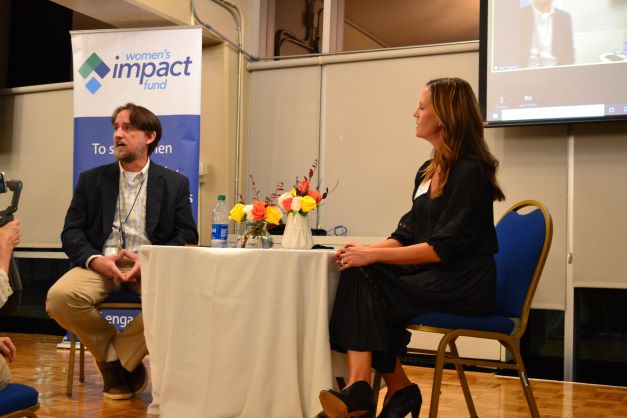
Think globally, act locally. It’s a simplified message but it sums up the theme of this year’s Social Hour for Social Issues event where Women’s Impact Fund members and guests heard from two local experts on environmental justice and health disparities related to the environment.
 The event was kicked off with remarks from WIF Executive Director, Patricia Massey Hoke and Dr. Karen Morgan, Senior Vice President of Academic Affairs at Johnson C. Smith University (JCSU), followed by presentations by Nakisa Glover and Dr. Mark Dugo. Ms. Glover is a Charlotte native and the founder and Executive Director of Sol Nation, an organization focused on climate justice. Dr. Dugo is an Assistant Professor of Ecology and Director of the Center for Renewable Energy and Sustainability at JCSU. A question-and-answer session with our speakers was moderated by WIF member, Amy Jacobs, Chief Opportunity Officer at Common Wealth in Charlotte. This event was held in Grimes Lounge on the JCSU campus. The crowd was hybrid, some members attending in person and others via zoom.
The event was kicked off with remarks from WIF Executive Director, Patricia Massey Hoke and Dr. Karen Morgan, Senior Vice President of Academic Affairs at Johnson C. Smith University (JCSU), followed by presentations by Nakisa Glover and Dr. Mark Dugo. Ms. Glover is a Charlotte native and the founder and Executive Director of Sol Nation, an organization focused on climate justice. Dr. Dugo is an Assistant Professor of Ecology and Director of the Center for Renewable Energy and Sustainability at JCSU. A question-and-answer session with our speakers was moderated by WIF member, Amy Jacobs, Chief Opportunity Officer at Common Wealth in Charlotte. This event was held in Grimes Lounge on the JCSU campus. The crowd was hybrid, some members attending in person and others via zoom.
A key message from both speakers was around the importance of ensuring BIPOC (Black, Indigenous, People of Color) communities are connected to their environment and are empowered to impact changes to the air, land, and water in their neighborhoods. A focus of Sol Nation is narrowing the “green gap”, defined as the difference between a BIPOC community’s desire to build and live in regenerative and sustainable neighborhoods and their access to the resources, power, education, and infrastructure to achieve those goals. Dr. Dugo is currently championing efforts to broaden the participation of JCSU students in ecological sciences and thus connecting their identity to the land and social justice. Ms. Glover explained that Sol Nation considers their organization to be “interpreters” who help communities understand issues like climate change and the impacts it has on their local communities. She gave an example. When some people in the communities she’s working in when hearing “particulate matter in the air,” it doesn’t mean anything to them. However, when you put the air quality in the context of respiratory issues and asthma, these are issues the local communities are familiar with and motivated to affect.
environment and are empowered to impact changes to the air, land, and water in their neighborhoods. A focus of Sol Nation is narrowing the “green gap”, defined as the difference between a BIPOC community’s desire to build and live in regenerative and sustainable neighborhoods and their access to the resources, power, education, and infrastructure to achieve those goals. Dr. Dugo is currently championing efforts to broaden the participation of JCSU students in ecological sciences and thus connecting their identity to the land and social justice. Ms. Glover explained that Sol Nation considers their organization to be “interpreters” who help communities understand issues like climate change and the impacts it has on their local communities. She gave an example. When some people in the communities she’s working in when hearing “particulate matter in the air,” it doesn’t mean anything to them. However, when you put the air quality in the context of respiratory issues and asthma, these are issues the local communities are familiar with and motivated to affect.
 On a national and a local scale, there is a lack of philanthropic funding for environmental justice that needs to be remedied. Ms. Glover informed the group that only 1% of environmental grantmaking from the 12 largest environmental funders in the US is going to environmental justice groups and half of the philanthropic funding on climate issues in the US goes to 20 national “big green” organizations (90% of which are led by white people and 80% are led by men). To truly affect environmental justice in BIPOC communities, this funding needs to go to the people who understand the issues best – the people who live, work and play in those communities. A shift to this trust-based philanthropy can start at a local level by supporting environmental organizations that are led by people who are a part of Charlotte’s BIPOC communities. With refocused philanthropic giving, there is hope for change in issues such as food sovereignty, education equity, black maternal health, low birth weights, and more.
On a national and a local scale, there is a lack of philanthropic funding for environmental justice that needs to be remedied. Ms. Glover informed the group that only 1% of environmental grantmaking from the 12 largest environmental funders in the US is going to environmental justice groups and half of the philanthropic funding on climate issues in the US goes to 20 national “big green” organizations (90% of which are led by white people and 80% are led by men). To truly affect environmental justice in BIPOC communities, this funding needs to go to the people who understand the issues best – the people who live, work and play in those communities. A shift to this trust-based philanthropy can start at a local level by supporting environmental organizations that are led by people who are a part of Charlotte’s BIPOC communities. With refocused philanthropic giving, there is hope for change in issues such as food sovereignty, education equity, black maternal health, low birth weights, and more.




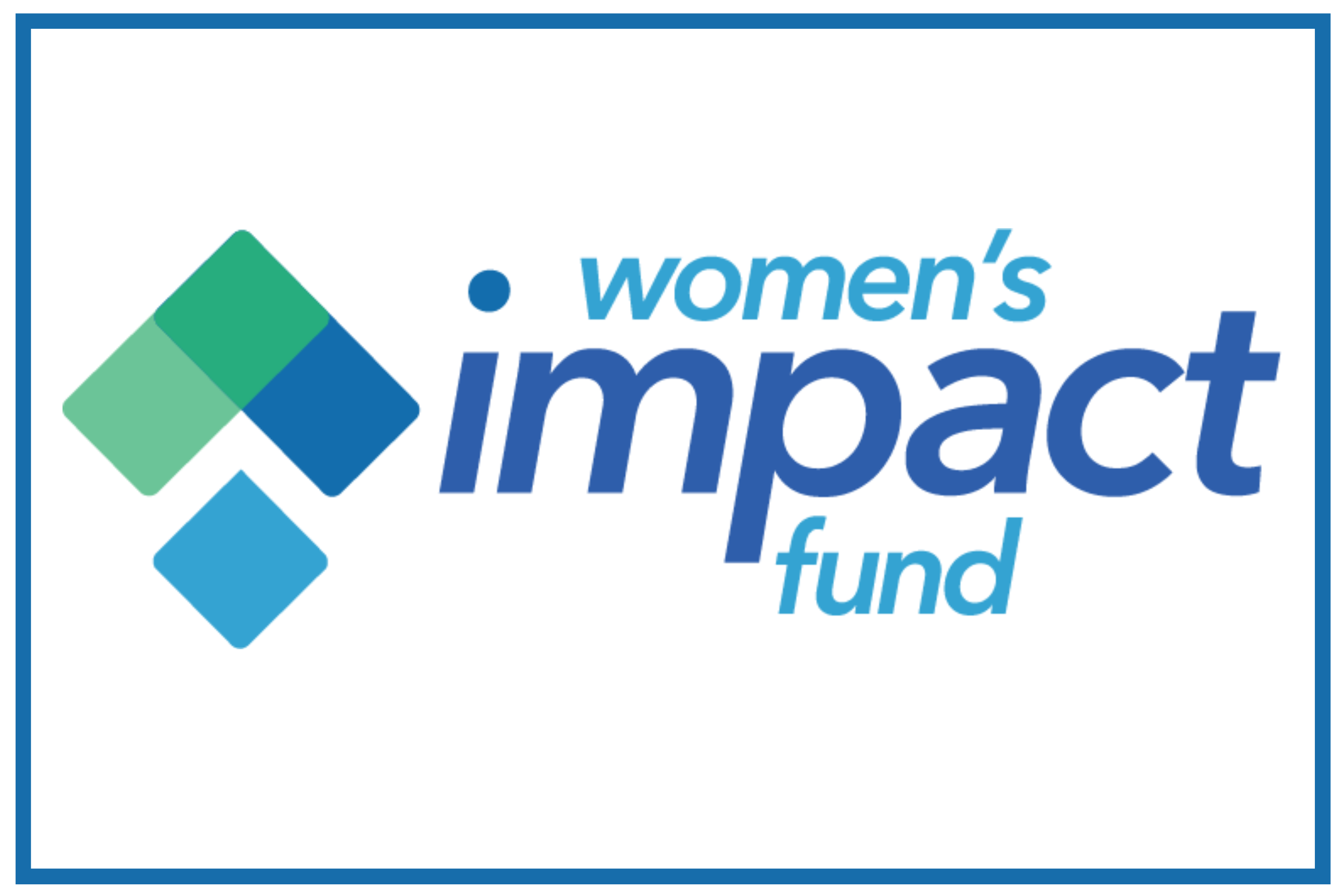
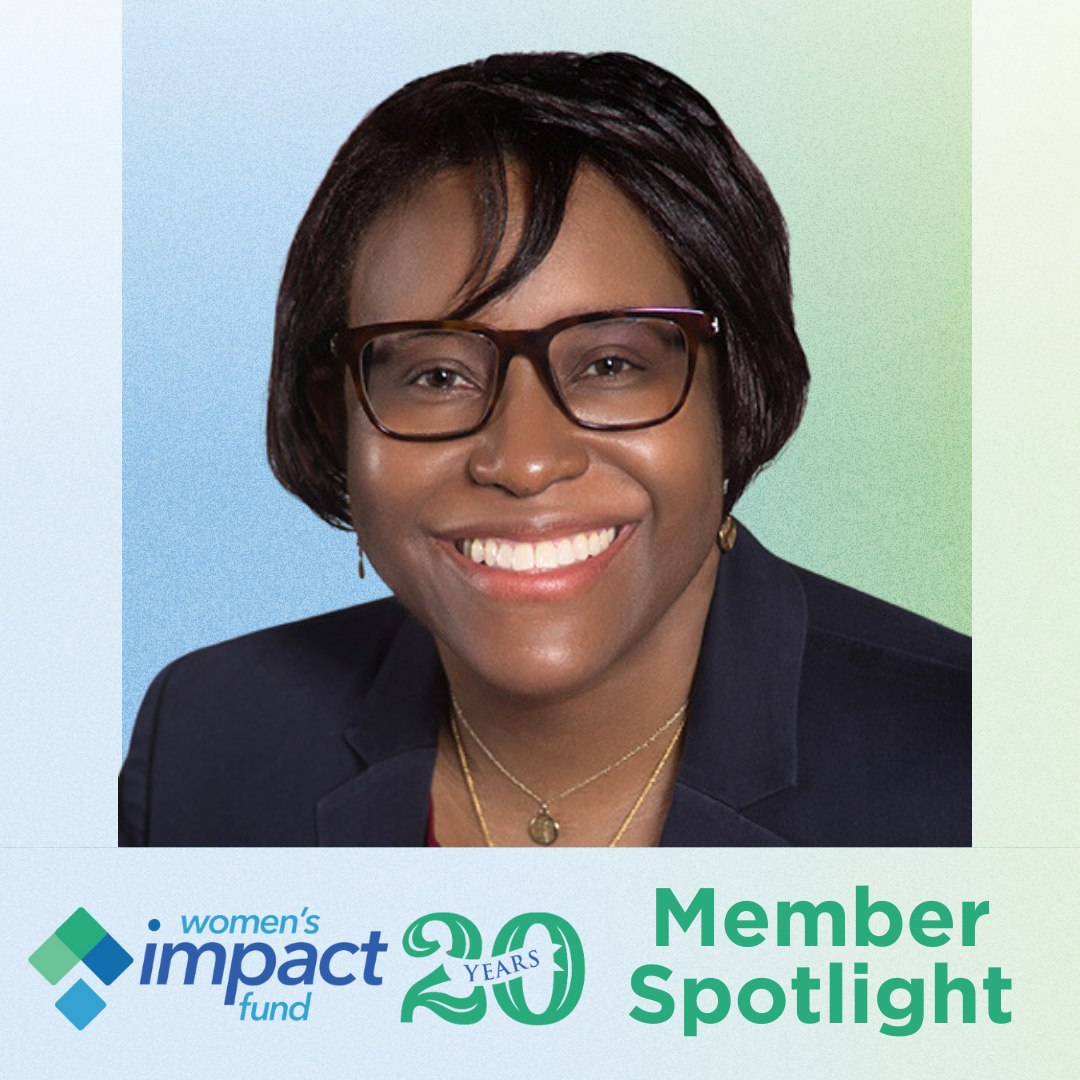
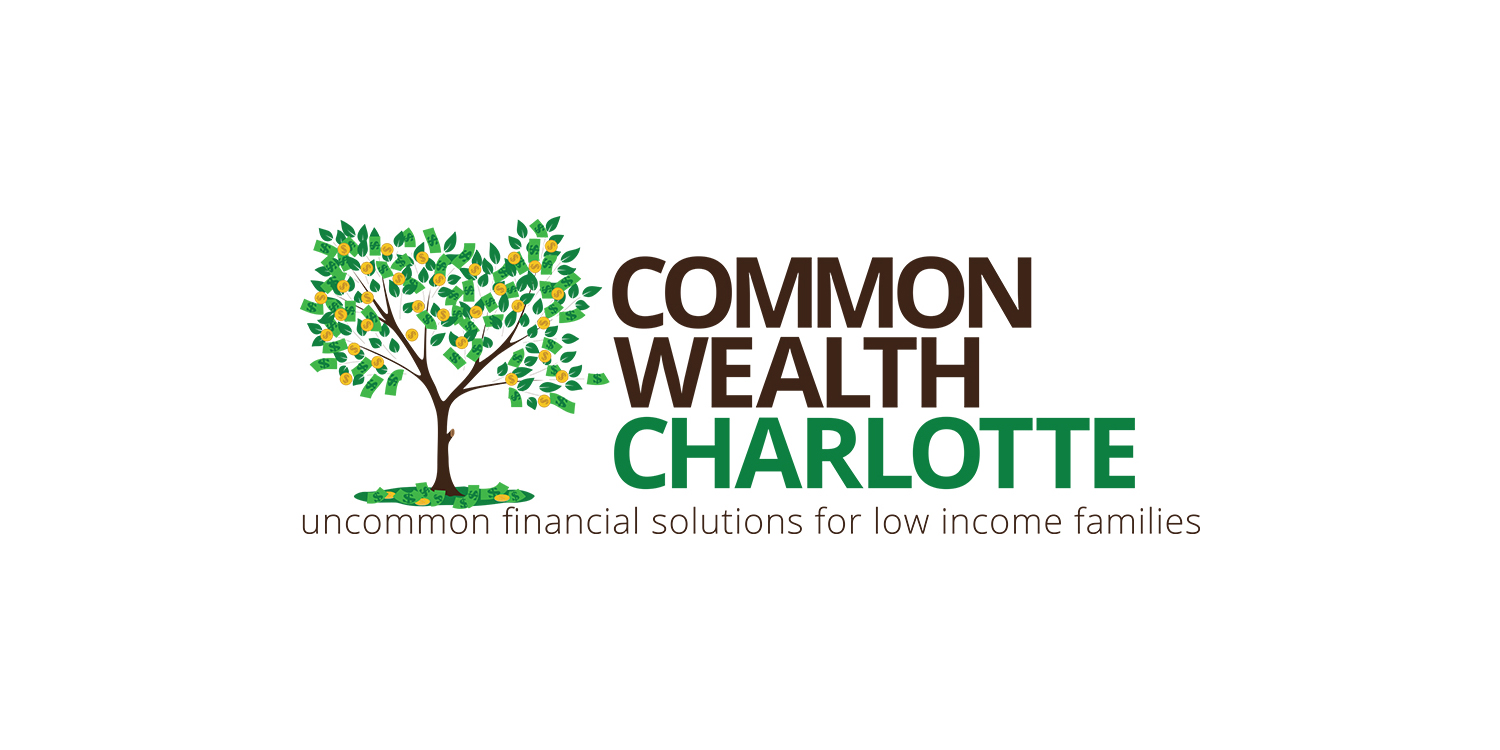
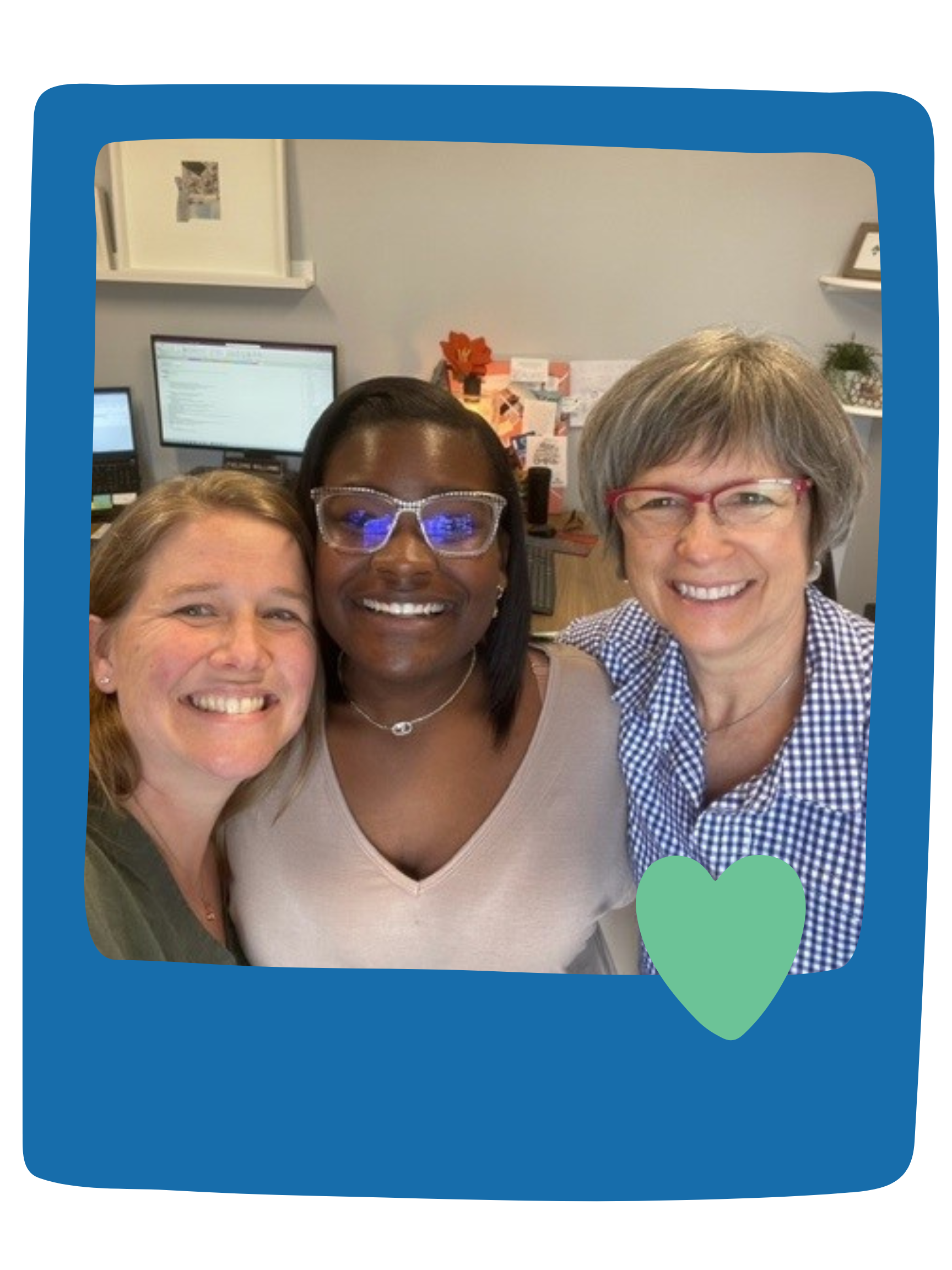
Leave a Reply